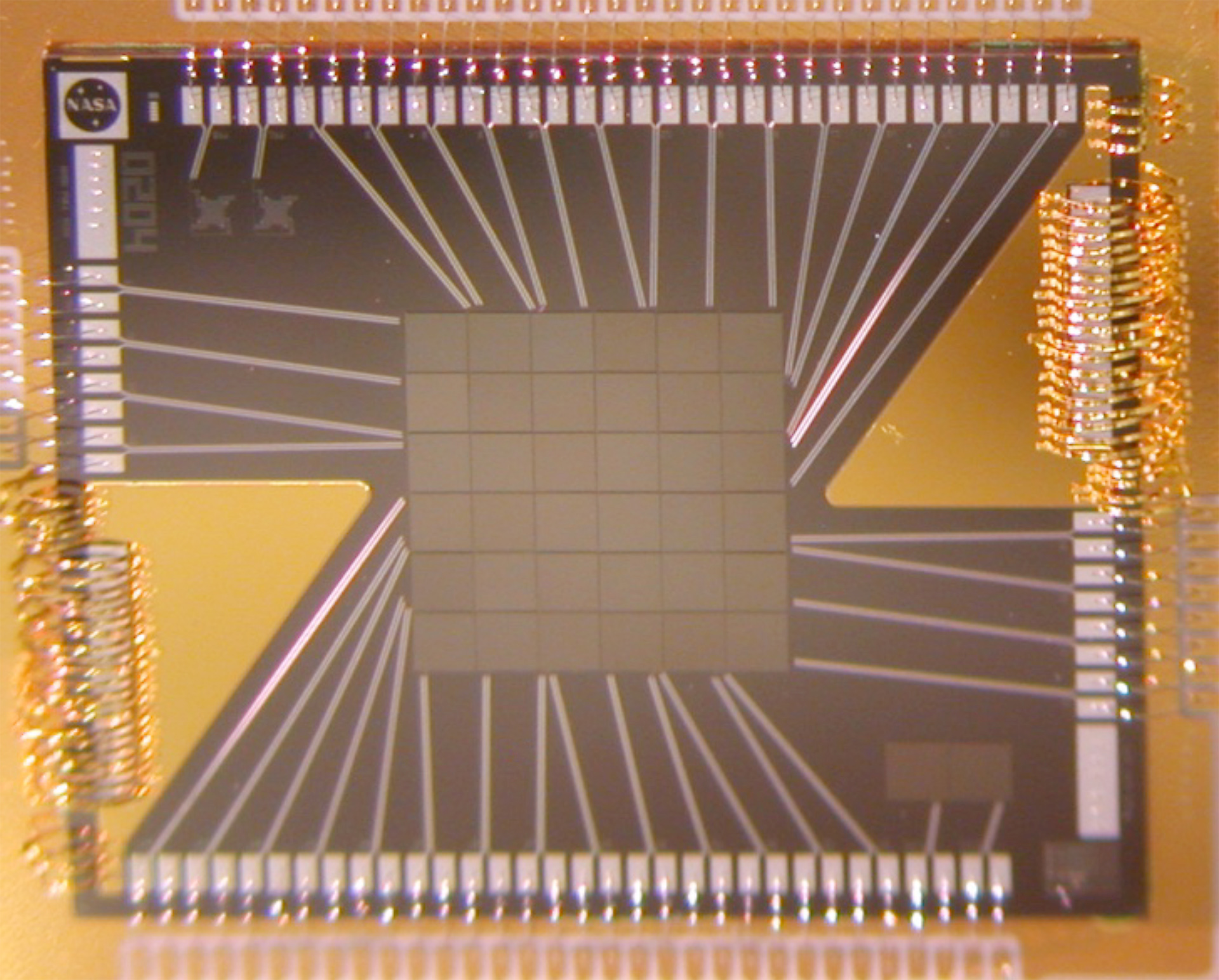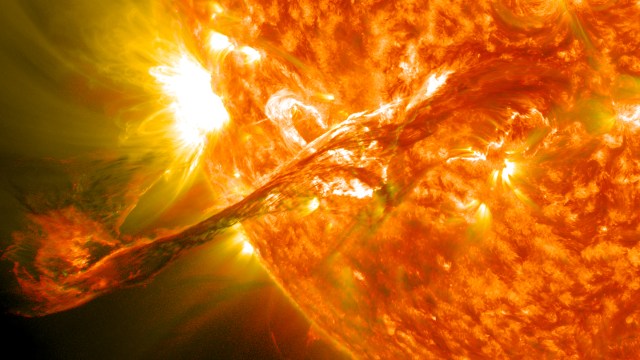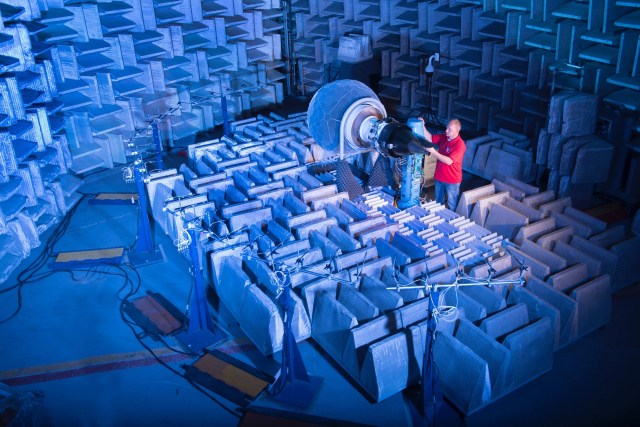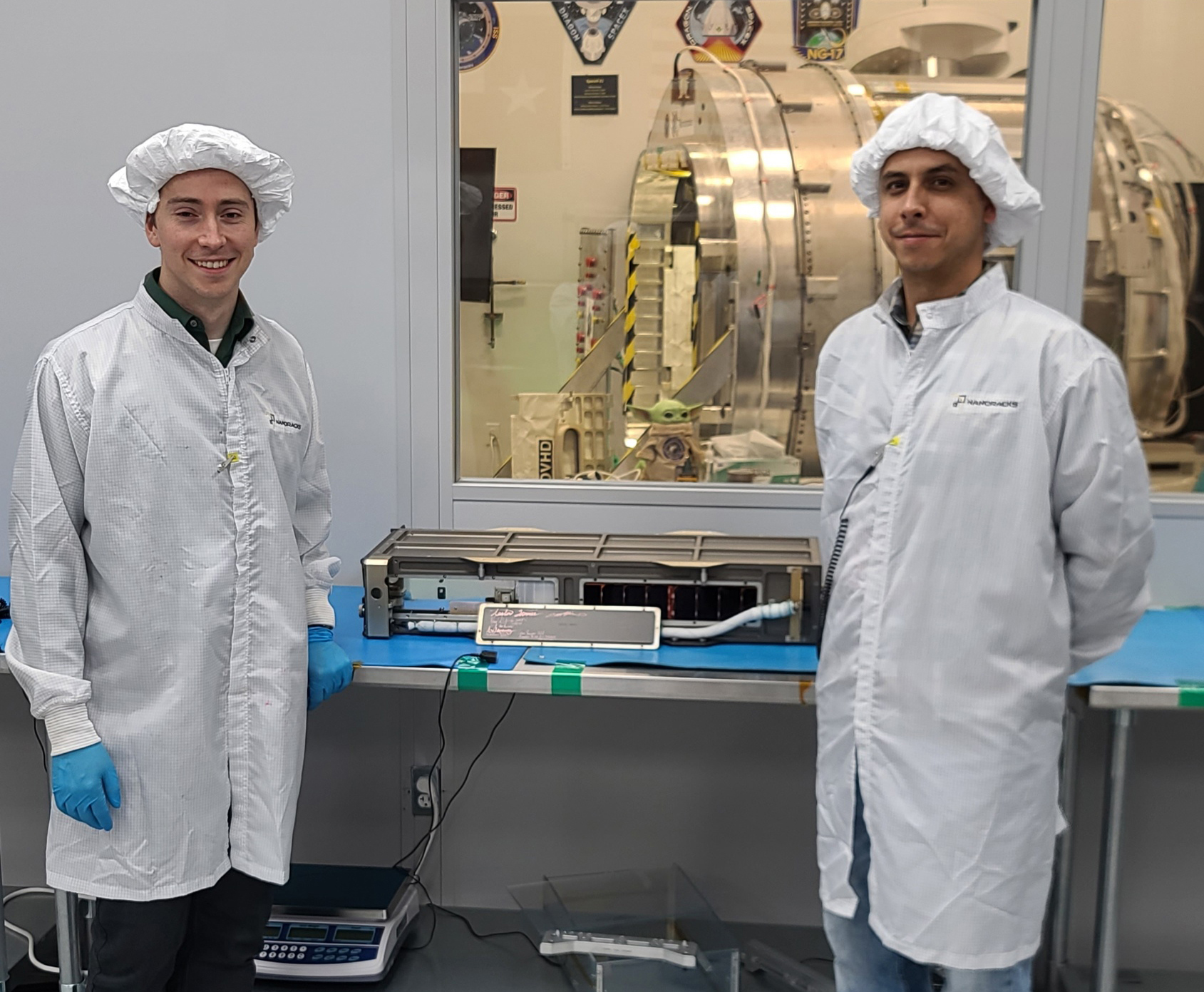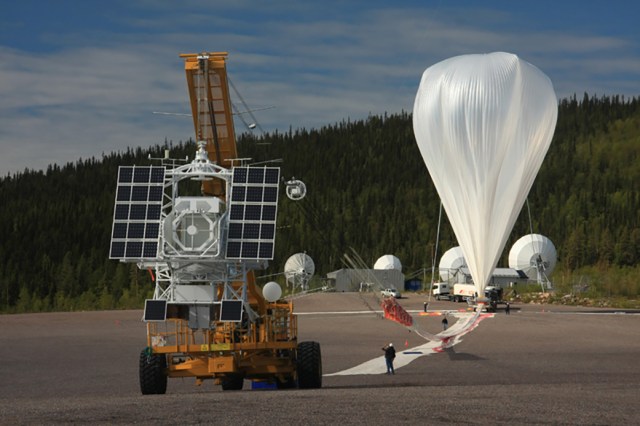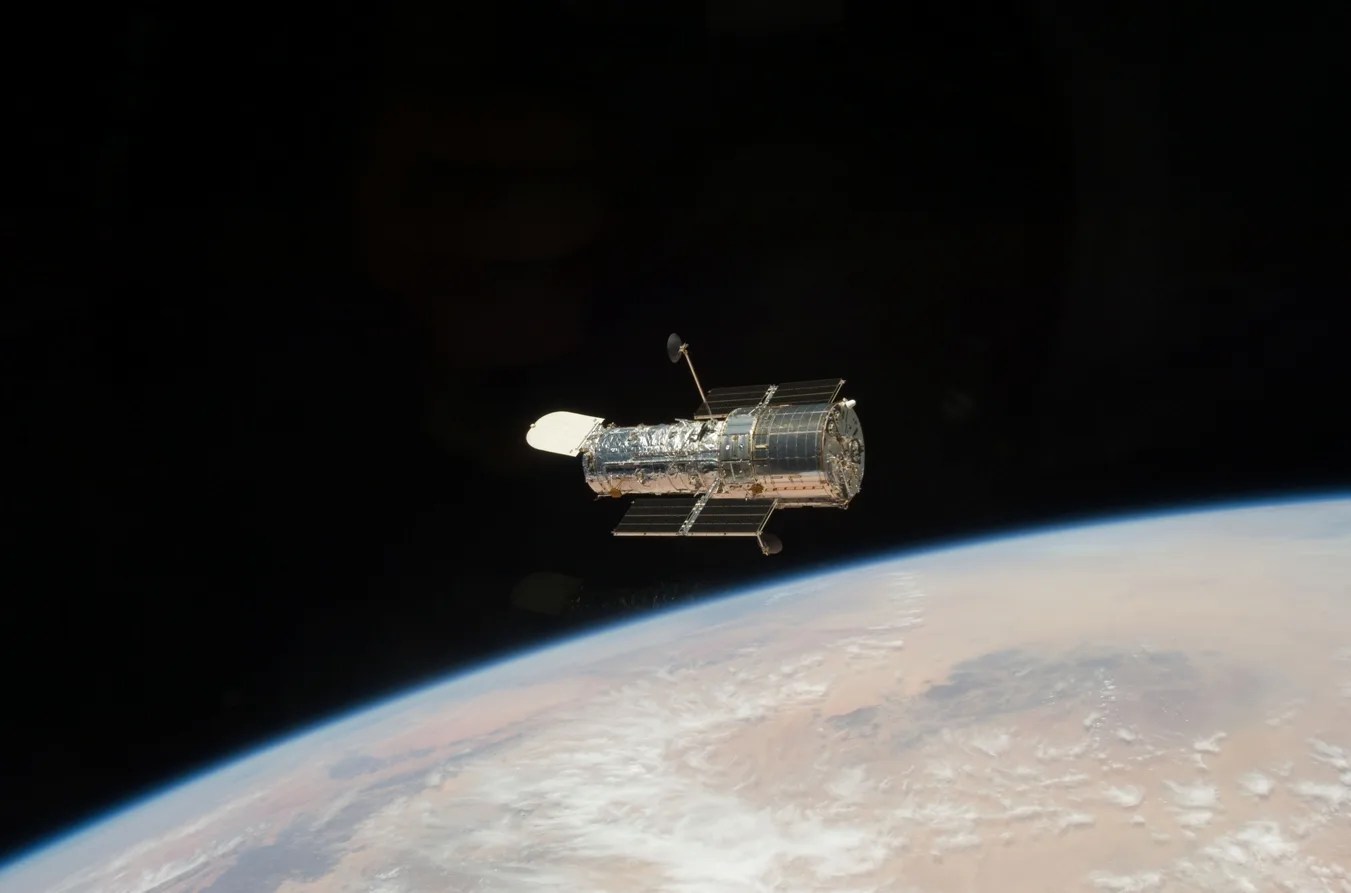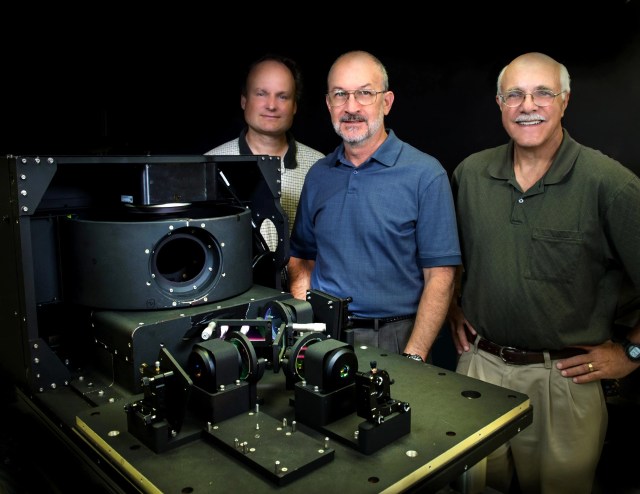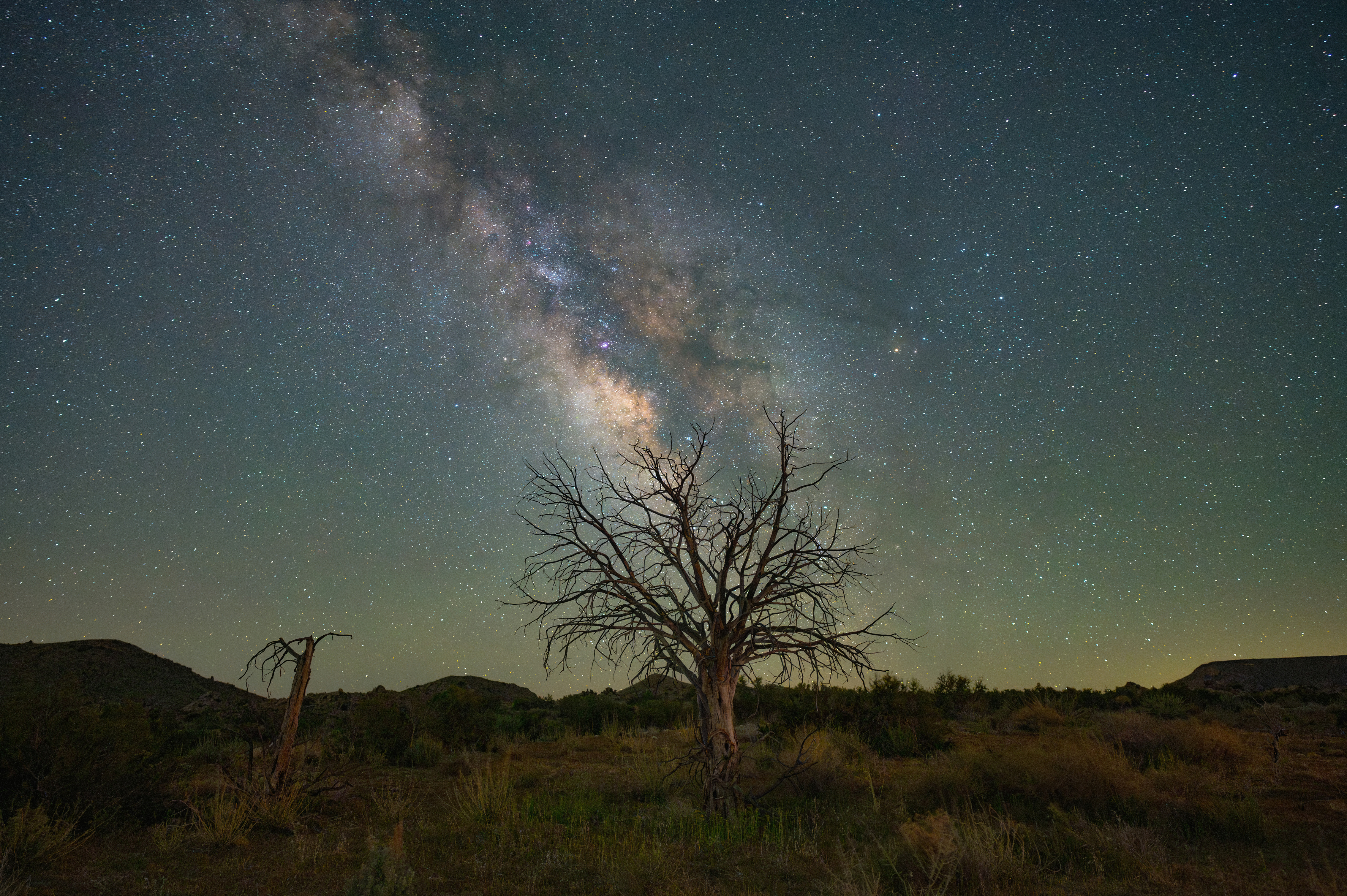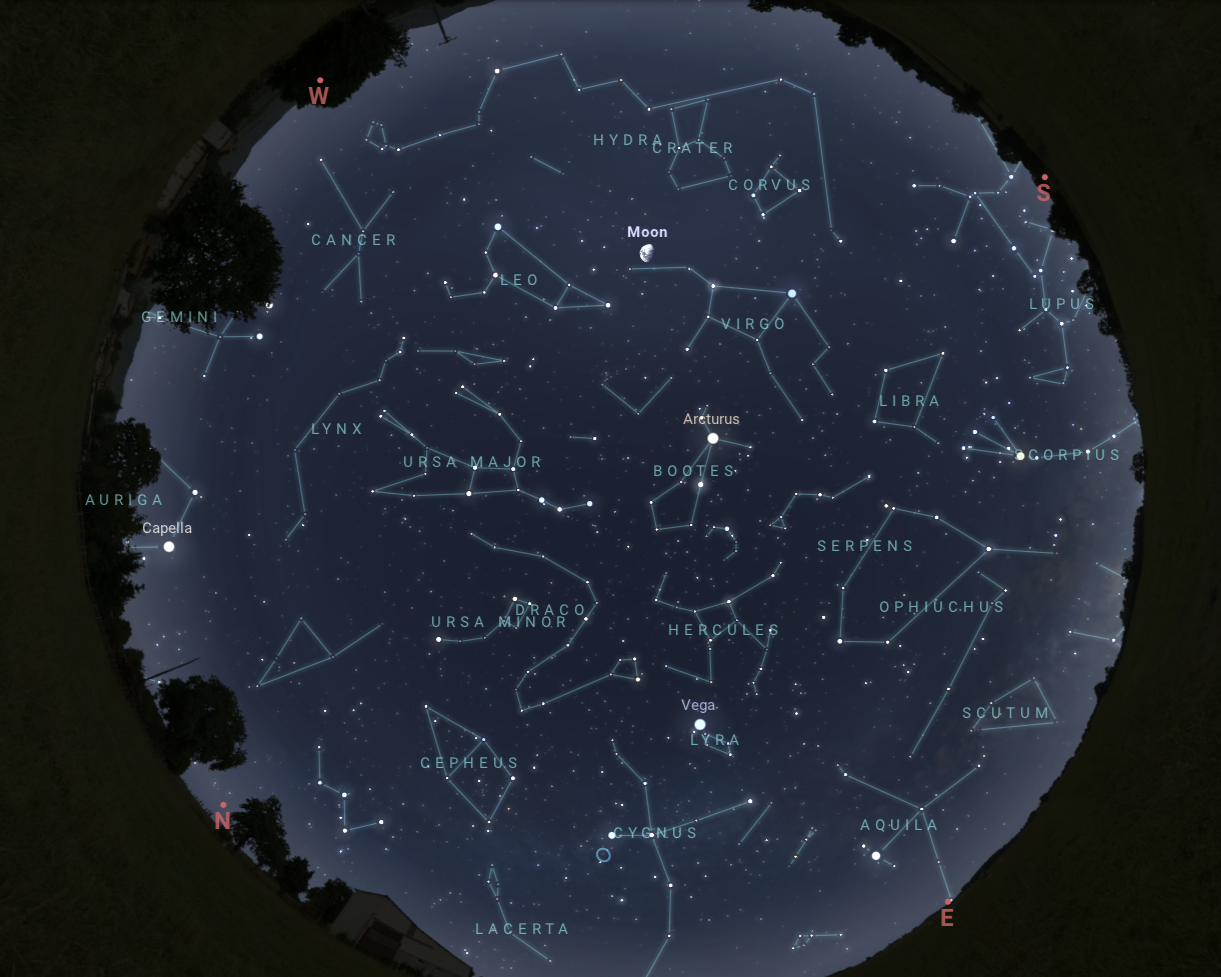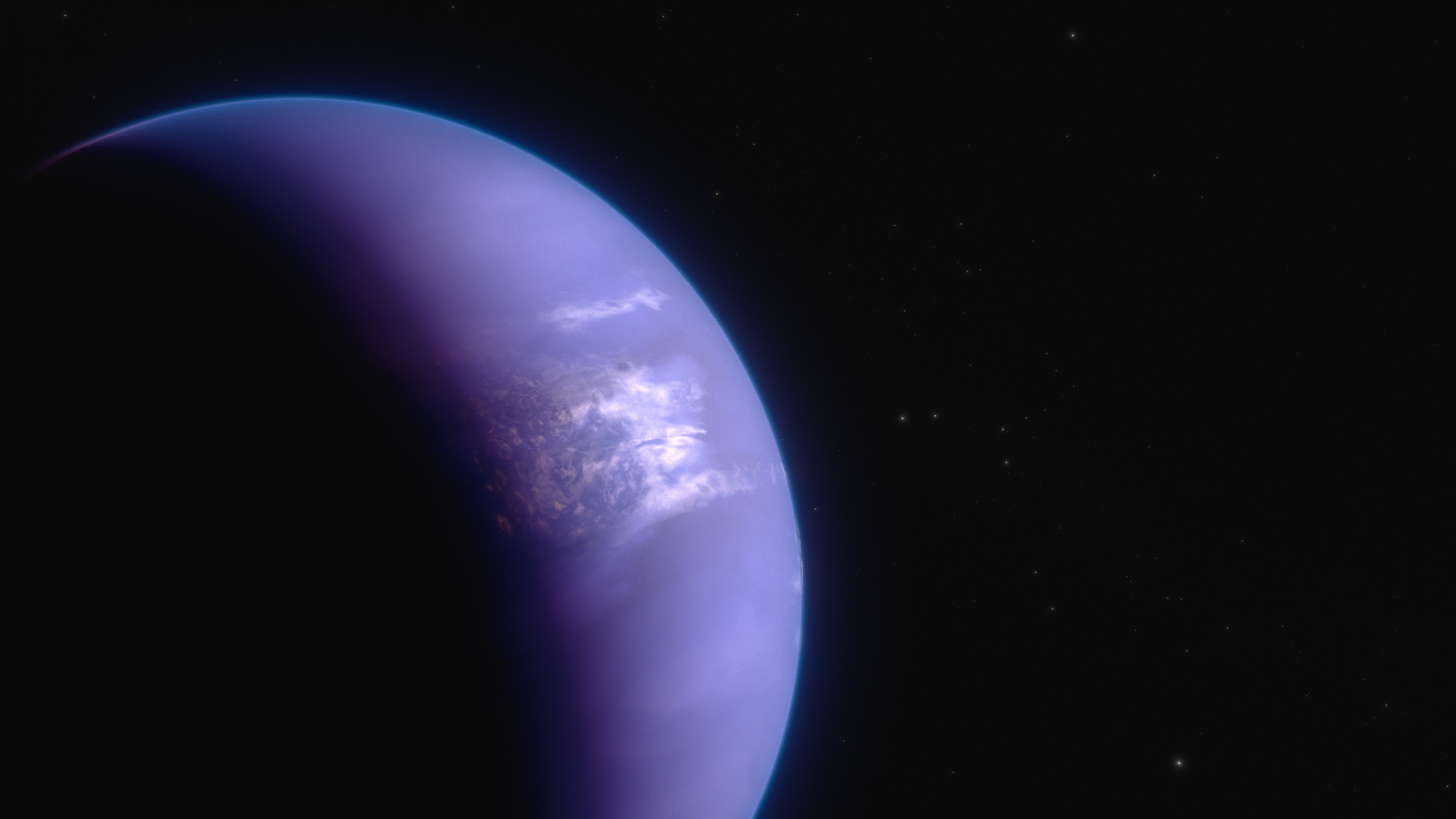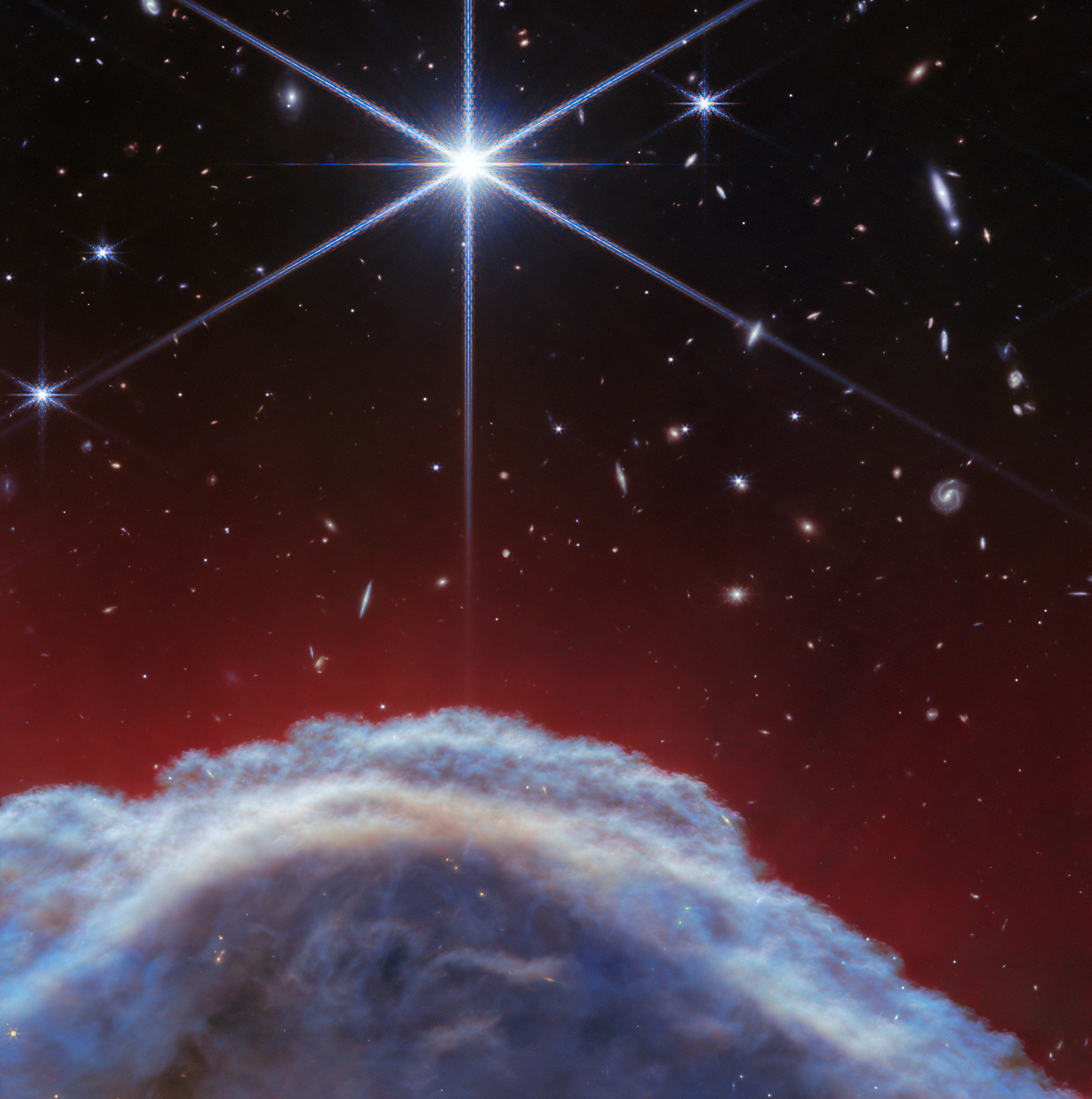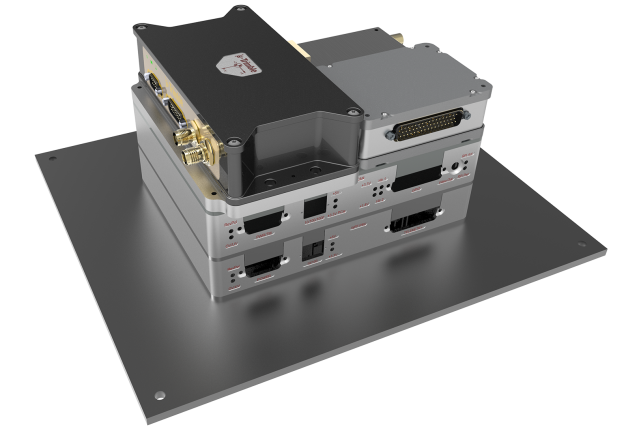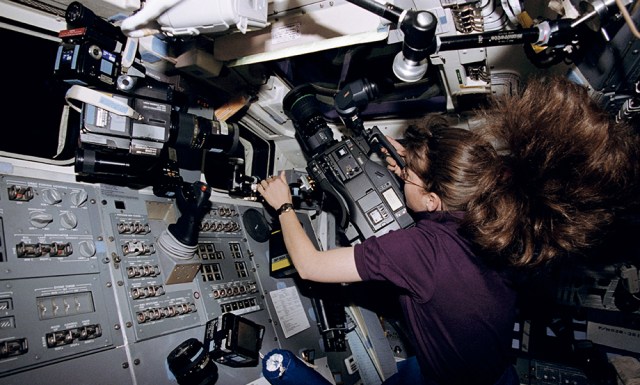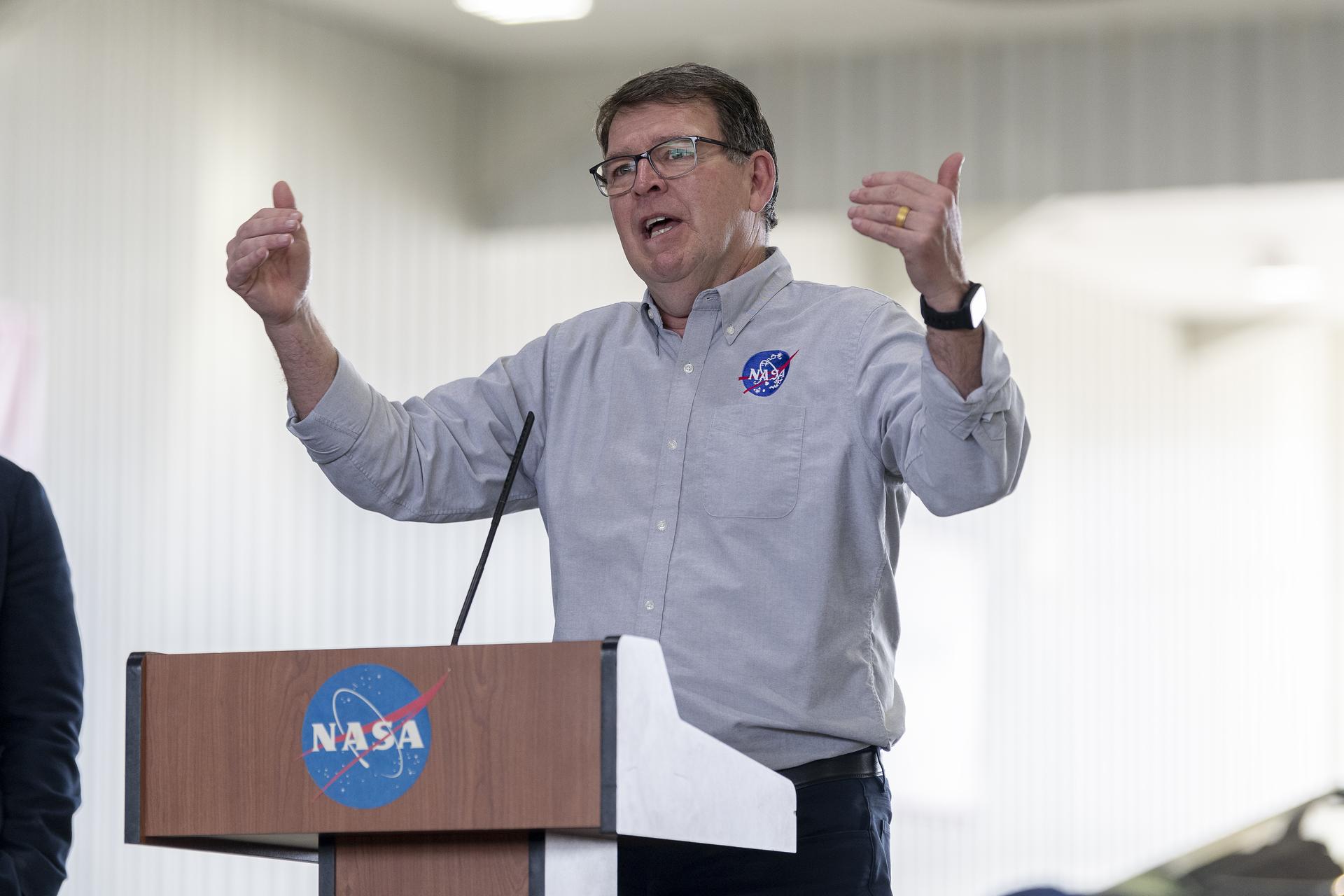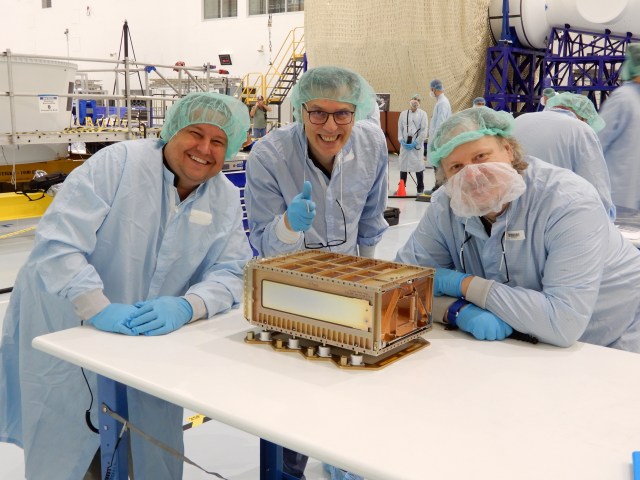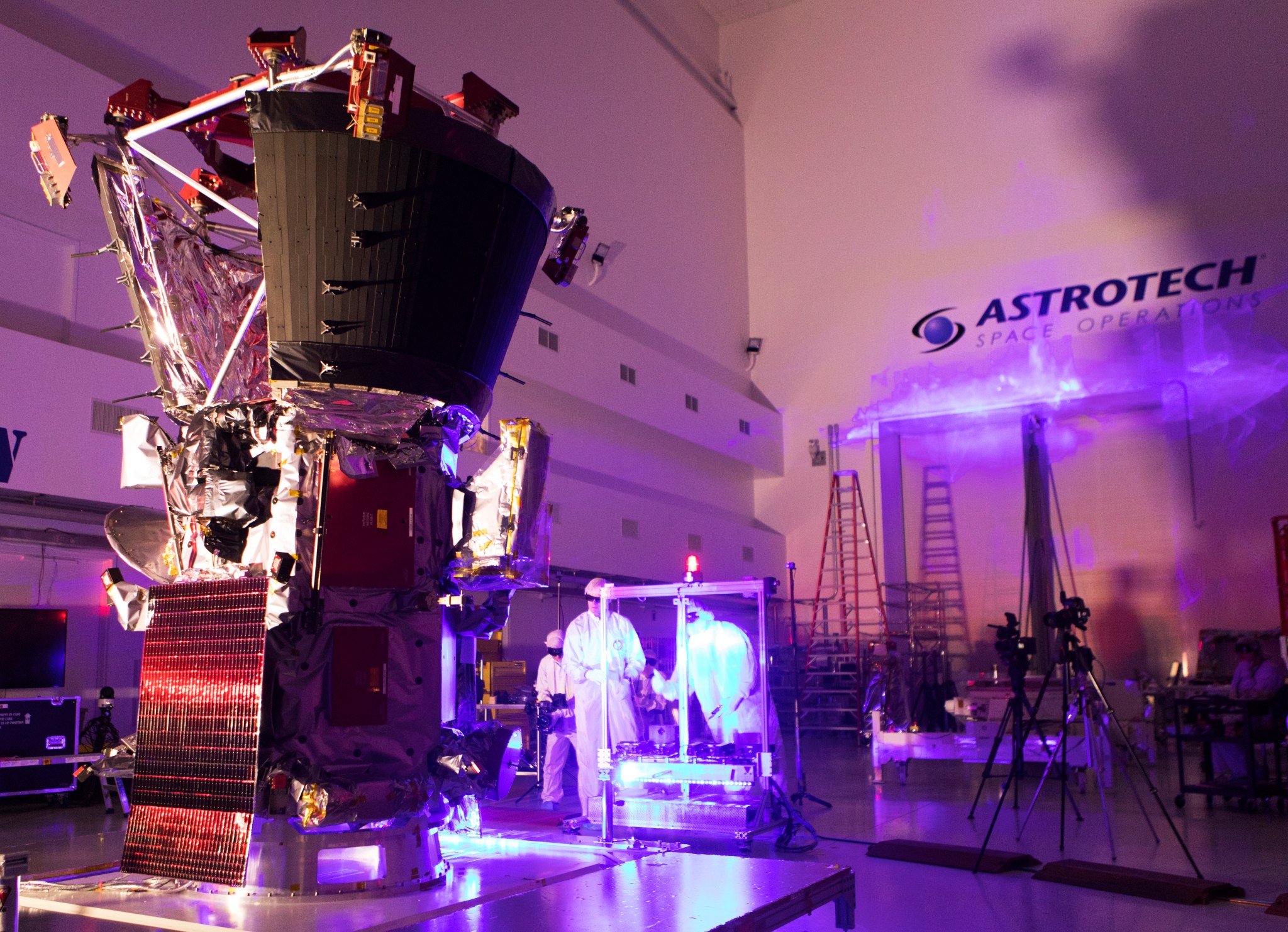
Media are invited to view NASA’s Parker Solar Probe at 1:30 p.m. EDT Friday, July 13, at the Astrotech Space Operations payload processing facility in Titusville, Florida.
Attending media will have an opportunity to photograph the spacecraft and interview project and program officials before its historic mission, scheduled for launch no earlier than Aug. 4, to revolutionize our understanding of the Sun.
This event is open only to U.S. citizens who possess a government-issued photo identification, such as a driver’s license, and proof of U.S. citizenship, such as a passport or birth certificate.
Media interested in attending this event must apply by noon EDT Tuesday, July 10. All media accreditation requests must be submitted online at:
Due to clean room requirements, no more than 20 individuals will be allowed to participate, and no more than two per media organization. Slots will be filled on a first-come, first-served basis.
For questions about accreditation, please email ksc-media-accreditat@mail.nasa.gov. For other questions, contact the newsroom at NASA’s Kennedy Space Center at 321-867-2468.
On July 13, credentialed media may proceed directly to Astrotech, located in the Spaceport Florida Industrial Park at 1515 Chaffee Drive. Access will be available starting at 1 p.m.
Facility Access
Participating media must comply with the following instructions. Those who fail to do so may be denied access to the clean room.
- Full clean room attire (bunny suits) will be furnished and must be worn during the media opportunity.
- Long pants and closed-toe shoes must be worn. No tank tops, shorts or skirts will be permitted.
- Please do not wear perfume, cologne, hair spray or makeup. Those wearing makeup will be required to remove it prior to entry.
- Photographers will need to clean camera equipment under the supervision or assistance of contamination-control specialists. All camera equipment must be self-contained.
- Nonessential equipment, such as suede, leather or vinyl camera bags, carrying cases, camera straps, or accessories with Velcro must be left outside the clean room.
- No notebook paper, pencils or click-type ball point pens are permitted; clean-room paper and non-retractable ball point pens will be provided.
- No transmitting devices will be permitted in the clean room, to include: cell phones, key fobs, Apple watches, camera remote controls, Fitbits and similar Bluetooth devices.
- Electronic flash will be permitted. The lighting in the facility is LED for pictures.
- No food, chewing gum, tobacco, lighters, matches or pocketknives will be allowed.
Parker Solar Probe will launch atop a United Launch Alliance Delta IV Heavy rocket from Space Launch Complex 37 at Cape Canaveral Air Force Station in Florida. The launch window will open at about 4 a.m., with an approximate one-hour duration.
The spacecraft will provide unprecedented information about our Sun, where changing conditions can spread out into the solar system to affect Earth and other worlds. The spacecraft will fly directly into the Sun’s atmosphere where, from a safe distance of approximately 4 million miles from its surface, the spacecraft will trace how energy and heat move through the Sun’s atmosphere and explore what accelerates the solar wind and solar energetic particles.
Parker Solar Probe is part of NASA’s Living with a Star Program, managed by the agency’s Goddard Space Flight Center in Greenbelt, Maryland, for NASA’s Science Mission Directorate in Washington. The Johns Hopkins Applied Physics Laboratory in Laurel, Maryland, designed, built and manages the mission for NASA.
United Launch Alliance of Centennial, Colorado, is the provider of the Delta IV launch service for Parker Solar Probe. Northrop Grumman is providing the rocket’s fully-integrated third stage. NASA’s Launch Services Program, based at Kennedy, is responsible for launch service acquisition, integration, analysis and launch management.
Join the conversation about Parker Solar Probe on social media at:
and
-end-
Dwayne Brown / Karen Fox
Headquarters, Washington
202-358-1726 / 301-286-6284
dwayne.c.brown@nasa.gov / karen.fox@nasa.gov
Geoffrey Brown
Johns Hopkins Applied Physics Lab, Laurel, Md.
240-228-5618
geoffrey.brown@jhuapl.edu
Tori McLendon
Kennedy Space Center, Fla.
321-867-2468
tori.n.mclendon@nasa.gov

